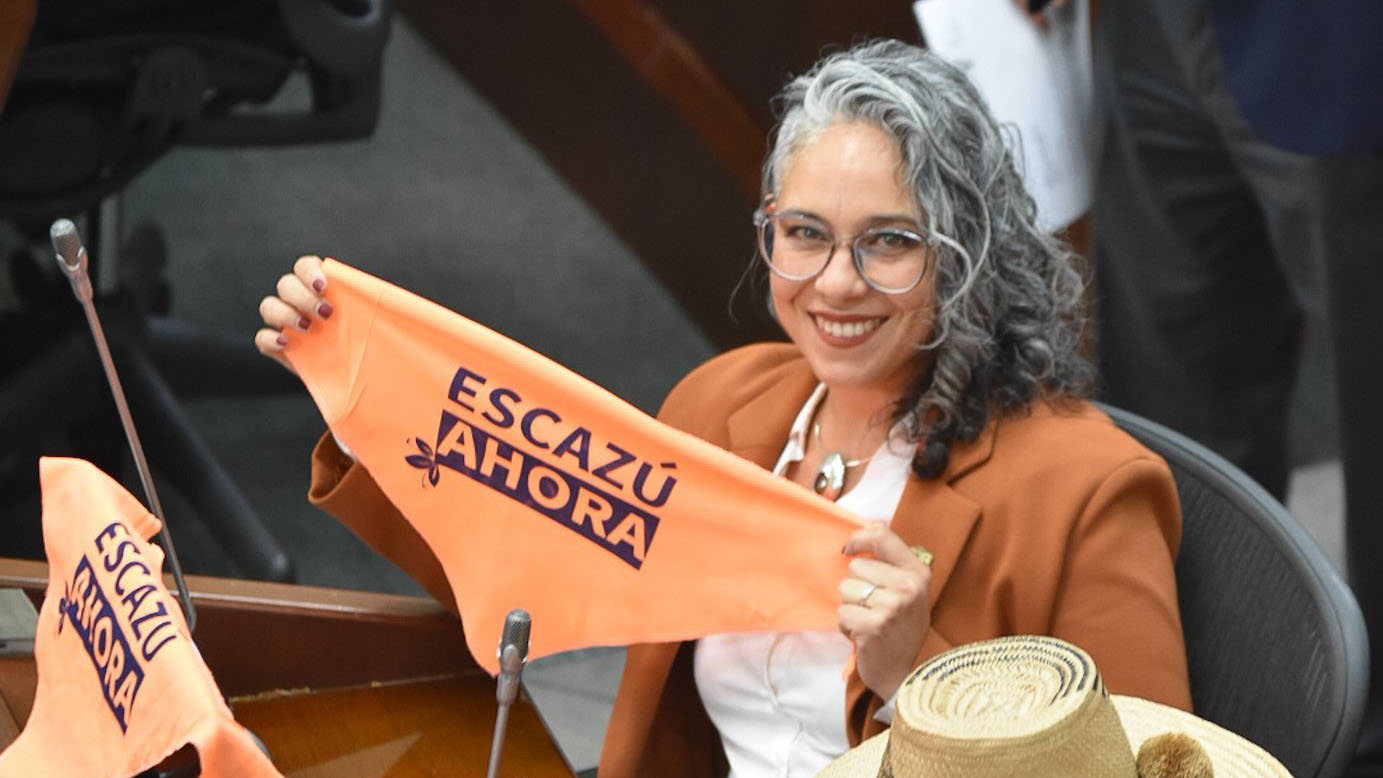The newly-inaugurated Colombian Senate, in its first plenary session on July 26, with 74 votes in favor and 22 against, ratified the Escazú agreement. The approval brings the agreement one step closer to being ratified in the country as a whole, pending two more debates and votes in the House of Representatives, the Commission and in the plenary. Finally, the agreement would be signed by the president.
#PlenariaSenado | APROBADO en segundo debate, el PL que busca ratificar el Acuerdo Regional de Escazú.
Por el Sí ✅ 74 votos
Por el No ❌ 22 votos pic.twitter.com/017JcPbyMp— Senado de la República 🇨🇴 (@SenadoGovCo) July 26, 2022
The Escazú agreement is a regional treaty which promotes access to information about the environment, citizen participation in environmental decision-making, environmental justice, and a healthy and sustainable environment for current and future generations in Latin America and the Caribbean. It also promotes the protection of environmental defenders, which is a serious issue in a region which is considered the world’s most dangerous continent for environmental activists.
#EscazúAhora ❇️| En segundo debate de Senado se aprobó el Proyecto de Ley que busca ratificar el Acuerdo Regional de Escazú. En la primera sesión plenaria de Senado del actual legislativo, las nuevas bancadas aprobaron con un total de 74 votos a favor y 22 en contra 👀👇🏽 pic.twitter.com/45RB7bGbVk
— Colombia Informa (@Col_Informa) July 26, 2022
The agreement was adopted in Escazú, Costa Rica, in March 2018. Out of the 33 countries in the region, 25 signed the agreement. So far, it has been ratified by 13 countries: Antigua and Barbuda, Argentina, Bolivia, Chile, Ecuador, Guyana, Mexico, Nicaragua, Panama, Saint Vincent and the Grenadines, Saint Kitts and Nevis, Saint Lucia, and Uruguay.
Then-President Iván Duque signed the agreement in December 2019, following massive protests. The ratification of the agreement was presented in Congress in 2020, however, the legislators of the far-right Democratic Center party, who had been critical of the agreement, obstructed and postponed its debate on several occasions. On July 26, the Democratic Center presented a proposal to shelve the ratification of the agreement, which was rejected by the majority of senators.
Senator Iván Cepeda of the left-wing Historic Pact coalition, the main promoter of ratification, celebrated its approval as the “first victory” of the incoming government.
“It is an advance in the protection of the environment and water in Colombia,” Cepeda tweeted.
Senator María José Pizarro of the Historic Pact, said, “the allies of the Duque government tried to sink the Escazú Agreement again, today the bench of Change in the Senate debated and approved it.”
“We are going to make Colombia a world power of life!” she added.
The ratification of the agreement in the Senate is a historic step to guarantee the rights of environmentalists and Afro-descendant and Indigenous communities, who are often threatened and killed in Colombia. It provides the land and water defenders with a mechanism that strengthens environmental defense.
According to data collected by the Institute of Development and Peace Studies (INDEPAZ), between January 1 and July 24, 2022, 107 environmentalists, land defenders, human rights defenders, Afro-descendent, Indigenous, peasant and social leaders had been assassinated in different parts of Colombia.
Ratification is expected to be approved by the lower house of the parliament with the similar ease. President-elect Gustavo Petro, who will assume office on August 7, has already expressed his intention to ratify Escazú.
The agreement is in line with Petro’s plans to gradually reduce the country’s economic dependence on extractive industries and fossil fuels to avert the climate crisis, as well as to combat paramilitary violence and establish peace. Escazú establishes international measures to guarantee the correct application of ecological policies to strengthen biodiversity, within the context of a global climate crisis.





